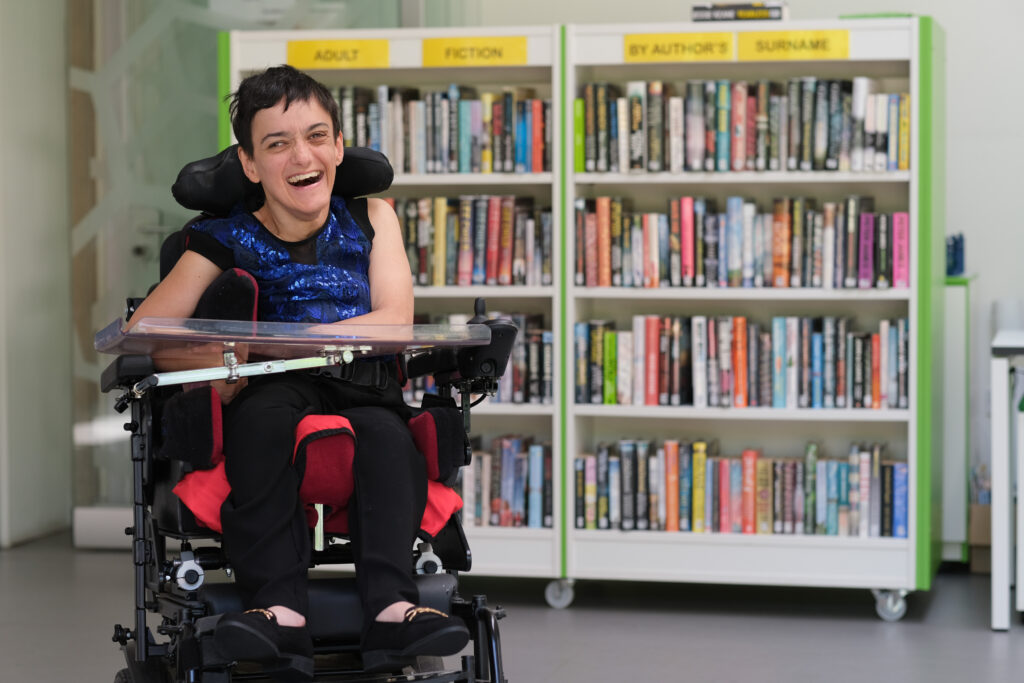Sector joins together to ‘break through barriers’

In partnership with Action for Children and other leading organisations we have today published Breaking through Barriers. The report brings together collective insights and evidence on the key barriers that disadvantaged groups, including people with complex disabilities, face to lifting their incomes through work.
We’ve spoken before about what we think the government needs to do to support people with complex disabilities looking for and in work. You can read in more detail about what we are calling for here.
Economic inactivity is a growing issue the government need to tackle
There are 1.7 million economically inactive people who want a job now, and many more who expect to work again in the future. We know that the government wants to tackle this and also believe that there are ways it can. This is particularly the case when we know that:
- The number of people who are economically inactive due to long-term sickness continues to rise, having increased by 500,000 since the pandemic began to more than 2.6 million people.
- Worsening health among the working-age population is a key factor contributing to rising inactivity. More than a third of working-age people (36%) now report having at least one long-term health condition.
- A further 1.6 million people are economically inactive due to looking after family and home.
It’s clear that many people have struggled post-pandemic. There are some clear opportunities for policymakers to strip away some of the barriers identified and increase opportunities for work participation with government reform and investment.
Disabled people, people with health conditions, those with caring responsibilities, and single parents are the most likely to experience barriers to work
We know that many people with health conditions or disabilities can and do want to work, but too often the support is not there to help them to find and sustain work.
- Half of jobseekers with complex disabilities (50%) didn’t feel that they had the support and equipment they needed to look for work.
- 41% of unpaid carers surveyed in 2022 had been forced to give up paid employment and 23% had to reduce their hours.
- Single parents are twice as likely to be unemployed and underemployed compared to couple parents
With this in mind, we’d like to see the government do more to recognise the barriers people are facing and provide support. There are specific and tangible things that could be done, benefitting disabled people, carers and parents who want to work.
The report shows that current approaches to childcare are not working for children, parents or providers. High childcare costs hold parents back from returning to work. Government could extend the free childcare offer to all families, including parents who are not working, or are in training or education, this would ensure that parents of children who cannot work are not disadvantaged by not being able to access childcare.
Comprehensive disability equality training, including for complex disabilities, for all Jobcentre Plus staff would help support disabled people access jobcentres. Simply providing knowledge of the support available is empowering in itself. There could also be specific training to develop specialist work coaches for single parents.
More needs to be done
At the Spring Budget this year, the Government took several steps to try and encourage more people back into work and committed to making it easier for disabled people to enter employment.
However, 7 months later and there is still much more that needs to be done. People with complex disabilities need more help to overcome the multitude of barriers they face. With the upcoming Autumn statement, the Government has an opportunity to announce more support for people to enter work.
In the paper, we present a range of policy ideas of varying size and scope. We set out a number of ideas for far-reaching reforms to our social security, childcare, employment support and immigration systems. These measures would help people from all backgrounds, we believe they could be truly transformative and could be implemented quickly and have an immediate impact.
Working together to bring about change
We know that there is power in the sector when it joins together to call for change. The publication of today’s report isn’t the end of our work on this important issue.
As a coalition we have written a letter to the Chancellor, Jeremy Hunt. The letter calls on him to announce new measures in his Autumn Statement later this month to help people get into employment.
We will also be hosting a parliamentary event, where MPs can come a meet with all the charities that have contributed to the report. At the event we will highlight the barriers to work faced by those we support and encourage policy makers to enact policies that break through them.
Going Forward
At Sense we will be continuing to work on tackling the inequalities people with complex disabilities face. People with complex needs who want to work should get the support they need to enter and stay in employment, as well as progress in their careers.
In particular we’ll be calling on government to:
- Invest in a £5 million Jobcentre Assistive Technology Fund
- Comprehensive disability training for all Jobcentre staff.
- Reform the Disability Confident Scheme to strengthen the requirements on members.
You can read in more detail about the employment support we will be calling for here

